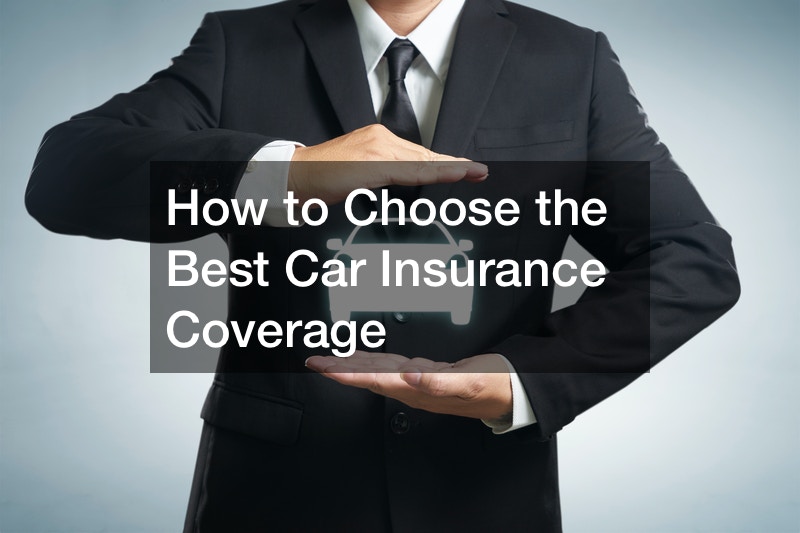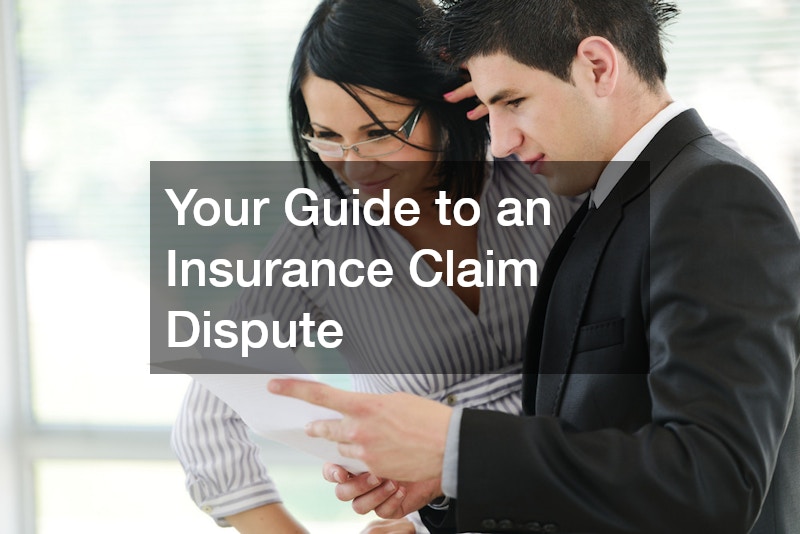How to Choose the Best Car Insurance Coverage

If you’re wondering how to choose the best car insurance coverage, you may already be familiar with the benefits of car insurance. For instance, you never know when your vehicle will get damaged. If you have the right insurance policy, the damage and loss to the insured vehicle will be covered. Car insurance is also handy because it offers various options like personal accident cover and third-party liabilities, which gives you more peace of mind and protects you from significant financial losses. To ensure you get the most out of your car insurance, it’s crucial to understand how to choose the best car insurance coverage. First, let’s look at the common types of car insurance coverage available to you.
Auto Liability Coverage

Liability coverage is the most basic auto insurance coverage you can get. This type of coverage is not optional since you’re legally required to have it before you drive your vehicle. So, when figuring out how to choose the best car insurance coverage, you know that you’ll have to have liability coverage before you can consider additional coverage. Liability coverage can generally be broken down into two parts. There’s property damage coverage which pays for damage to another person’s property caused by an accident that you’re responsible for. Damage to another party’s property can include vehicles or any other type of property that’s destroyed because of the accident.
There’s also bodily injury coverage which pays for injuries to others in an accident. This coverage can include medical bills, prescriptions, and pain and suffering sustained by another person as a result of the accident. It’s important to remember that states may have different requirements regarding property damage or bodily injury claims filed against you. In addition, although liability coverage is a requirement in most states, the limits might vary depending on your location. As such, it might be helpful to search for the best insurance lawyers to get advice that will keep you compliant and educated.
Also, as mentioned, liability coverage is the most basic and bare-bones option you can get, so it makes sense that it may not cover certain things in an auto accident. For instance, liability coverage doesn’t cover damage to your property or any injuries that you might sustain. This is why you should consider getting additional coverage, so your damages and injuries are more protected.
Uninsured and Underinsured Motorist Coverage
Liability insurance may be basic, but it offers certain benefits. It covers damages and injuries for an at-fault accident, meaning that you can avoid significant out-of-pocket expenses. Still, you’ll have to pay out-of-pocket to cover the damage to your vehicle/property or any bodily injuries that you sustain. If you want to take things up a notch, then you might want to consider uninsured and underinsured motorist coverage. Uninsured motorist coverage (UM) is additional coverage that can be included in your insurance policy. However, keep in mind that in some states, this type of coverage might be a requirement instead of optional. With uninsured motorist coverage, you opt for motorist bodily injury coverage, and property damage coverage which compensates you when you’re injured or your property gets damaged by someone who is not insured.
A similar type of insurance is underinsured motorist coverage (UIM), which may or may not be available in your state. As the name suggests, this coverage provides protection in case your vehicle gets damaged or you sustain bodily injuries in an accident caused by a driver that doesn’t have enough insurance. Therefore, with UIM, you also get two types of coverages to cover property damage and bodily injuries. If you still need help determining how to choose the best car insurance coverage, you should always take the time to compare your options and learn more about additional coverage that goes beyond uninsured or underinsured motorist coverage.
Comprehensive Coverage
If you’re wondering how to choose the best car insurance coverage and you need an auto insurance option that’s more comprehensive, then comprehensive coverage should be right up your alley. Comprehensive insurance provides better protection because it covers damage to your car caused by anything else that isn’t a collision. For instance, if your car gets damaged in a storm or gets damaged by animals, you can rely on comprehensive insurance to pay for the required auto services. Comprehensive insurance may also pay if your car needs an automotive repair service after getting damaged from instances of vandalism, burglary, or other causes.
Although the law requires drivers to carry liability coverage, comprehensive coverage is not a requirement. This fact should not dissuade you from getting this coverage if you need it because it can come in handy. To begin with, comprehensive coverage provides protection against many potential threats, such as natural disasters, impact with animals, vandalism, theft of vehicle or vehicle parts, and fallen objects. In short, having comprehensive cover means your car is protected against a range of other situations that can happen unexpectedly. With this option, you get the highest level of security to your car to give you more peace of mind.
Collision Coverage

When determining how to choose the best car insurance coverage, you might want to spend time understanding the difference between collision coverage and comprehensive coverage. Generally, these are the two most crucial components of a good auto insurance policy. Both comprehensive and collision coverage provide better protection than liability coverage since they pay for damage to your vehicle. We have already looked at comprehensive cover, and it’s a good option that covers damage to your vehicle from unexpected sources that are not a collision. The main difference between the two is that collision coverage covers damage to your vehicle when you collide with an object or another car. That means it will pay for car collision repair. Your insurance agent can help you determine if car collision repair coverage is a good investment for you.
On the other hand, comprehensive insurance pays for damages sustained by your vehicle in a non-crash, such as when your car gets damaged by the weather or fire. It may also pay for collision repair in instances where your car gets damaged from collisions with animals or if you need auto body repair from vandalism. As you can see, these two options complement each other well, which explains why they are often sold in the same package by car insurance companies. Still, you can choose to purchase either collision coverage or comprehensive coverage, depending on your needs.
Medical Payments Coverage
Medical payments coverage is also known as Med Pay, and it’s another option to consider when deciding how to choose the best car insurance coverage. Simply put, Med Pay covers medical and funeral expenses incurred after a car accident. Unlike liability coverage, this type of cover is optional, but it can be highly beneficial since it covers you, the policyholder, any family members that drive the car, and the passengers. Med Pay can cover a wide array of expenses after a car accident, including ambulance fees, hospital expenses, doctor appointments, surgery, and medical tests, healthcare services, prosthetic limbs, and funeral costs. The biggest benefit of Med Pay is that you receive compensation, regardless of who is at fault.
What’s more, as a policyholder, you don’t have to be driving or in the car to receive compensation. If you sustain injuries as a pedestrian, while riding a bicycle, or using public transportation, your medical payments coverage might work to your advantage. However, medical payments coverage won’t apply in some specific instances. Therefore, it’s a good idea to read the fine print, so you know exactly where your coverage applies.
Personal Injury Protection

Personal injury protection (PIP) insurance is another type of coverage that may or may not be optional, depending on which state you live in. Some states require you to have a minimum amount of PIP coverage that you’re supposed to carry. In any case, this type of insurance provides compensation when you or your passengers get injured in a car accident. Your cover can also extend to scenarios where you get injured as a passenger in someone else’s car or as a pedestrian. You will receive compensation to pay for your medical expenses and lost wages. PIP is a type of ‘no-fault insurance’ because you still get covered whether you’re responsible for the accident or not. Keep in mind that there’s a difference between PIP and Med Pay.
Med Pay covers medical payments for you and the passengers in your car if you sustain injuries after a car accident. PIP also covers medical payments, but it will also cover other documented losses, such as your lost wages. In any case, both PIP and Med Pay are a better option than bodily injury liability insurance, which only pays for the medical expenses of drivers and passengers in other cars in an at-fault accident.
Optional Auto Insurance Coverage

Besides mandatory coverage like liability coverage and other optional forms of insurance discussed so far, there are also numerous options you can add to your policy to enhance your cover. For instance, you can opt for auto accessories insurance that helps protect car modifications, such as suspension upgrades, turbochargers, and superchargers. There are also other options, such as rental reimbursement coverage, gap coverage, ride-sharing coverage, vehicle title insurance policy, and classic car insurance. The types of optional coverages that you add to your car insurance policy will depend on your situation. On the one hand, you don’t want to increase the cost of your car insurance policy on additional coverage that you don’t really need. On the other hand, the right optional coverage can be a lifesaver. For instance, if you have a classic car, you might have more peace of mind if you opt for classic car insurance. If you’re not sure what additional coverage you might need, you can always talk to your insurance agent so they help you understand what cover you can expect to get so you can end up with a policy that’s just right for you.
Which Car Insurance Coverage Is Right for You?
Now that you know the different types of insurance coverage at your disposal, you will have a better time figuring out how to choose the best car insurance coverage. When comparing the various options, you also have to consider your unique situation. For instance, if you’re looking to purchase auto insurance for a car that you plan to finance with the bank, then you’ll have no option but to choose comprehensive coverage at the very least. That’s because the vehicle will be used as security for the loan, and the lender once to know that the car is fully insured so they can recover their investment should you default on your loan.
On the other hand, if you have an old car with a low value, you might be better off with only liability coverage. The last thing you want is to insure your car for more than its value. Some people hesitate to get additional coverage even when they need it because they’re worried about the costs. The great news is there are several things you can do to lower your auto insurance costs. You should start by shopping around to discover cost-effective options. Once you find the right insurance company, you can also ask for a higher deductible, bundle your car insurance with your home insurance, and take advantage of low mileage discounts.
Are you shopping for auto insurance and looking for a policy that suits your needs? This information will help you understand how to choose the best car insurance coverage. This is crucial as it helps you make an informed decision. By now, you should be able to understand the common types of car insurance you can choose from, all the way up to full coverage, and what it includes. If you want extra coverage, you can also explore optional auto insurance coverage. In any case, it’s not only important to determine how to choose the best car insurance coverage, but you also have to do your research and compare options to find a reputable and trusted auto insurance company. Good luck finding the right car insurance coverage and company for your needs.



